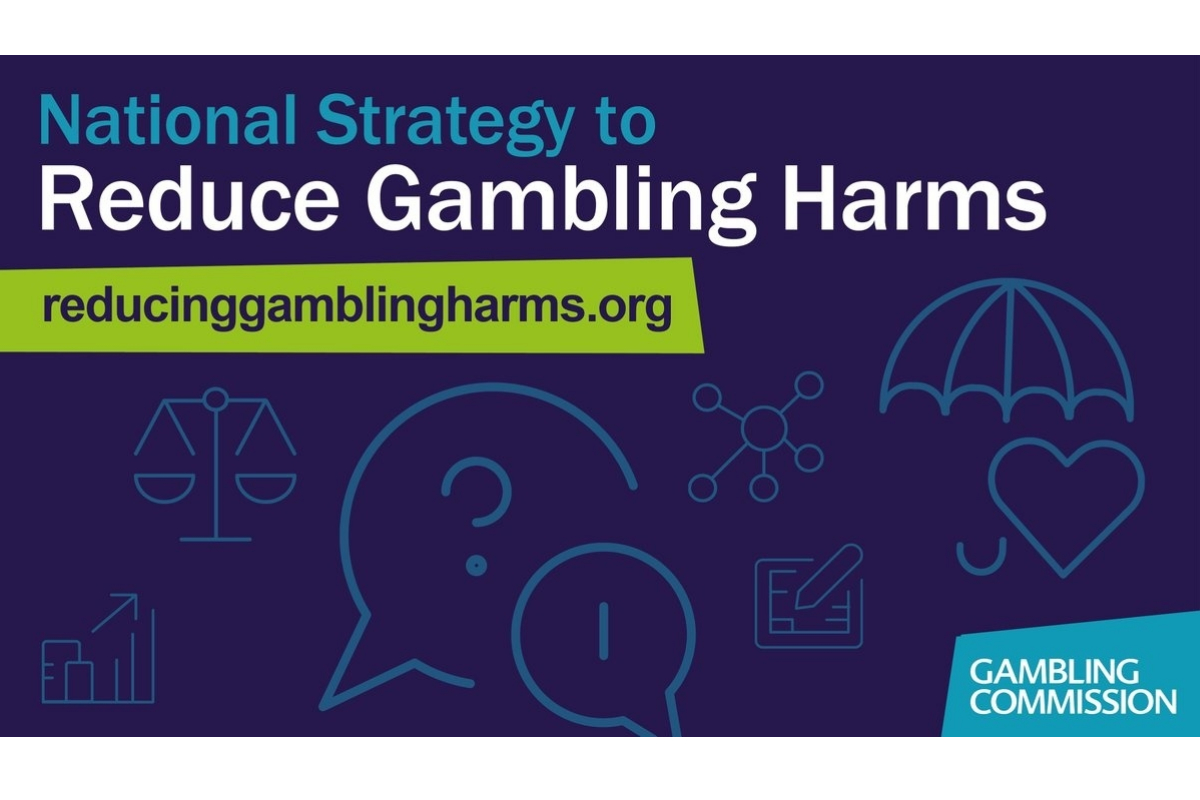Press Releases
UK: New analysis shows problem gamblers are more likely than others to have suicidal thoughts, attempt suicide and to harm themselves

GambleAware and the Gambling Commission have last week published the results of a small-scale research project that examines the link between problem gambling and suicide. The report will contribute to the National Strategy to Reduce Gambling Harms and is based on findings from the 2007 Adult Psychiatric Morbidity Survey (APMS). Out of over 7,000 respondents, 41 were found to be problem gamblers and were identified as being more likely than others to have thought about suicide and to have attempted suicide in the past 12 months.
The results showed that of those identified by the survey as problem gamblers, one in five (19%) had thought about suicide in the past year, compared with 4% of non-problem gamblers/non-gamblers. 5% of problem gamblers reported they had made a suicide attempt in the past year, compared with 0.6% of those who showed no sign of problem gambling.
The survey analysis shows an association between problem gambling, suicidal behaviours and loneliness that warrants further investigation. Problem gamblers were more likely to feel lonely and isolated from other people than the rest of the population. Problem gamblers appeared to have a smaller network of people they felt close to and were less likely to feel that their friends and family gave them encouragement and support.
This analysis is based on data from the 2007 survey. The APMS survey repeated in 2014 but did not include questions on gambling. It is hoped that the Department of Health and Social Care will commission another Adult Psychiatric Morbidity Survey for 2021 and the authors recommend that questions on gambling behaviour be included in that study to explore the association between gambling and suicidality further.
In order to scope out what further research may be needed, a range of stakeholders, including those with lived experience of gambling harms, including addiction and bereavement due to suicide, attended a one-day workshop. The aim of the session was to better understand what knowledge gaps there were regarding gambling and suicide and to develop recommendations for future work.
Recommendations include:
- The development of educational packages for clinicians, primary care providers and coroners to raise awareness of the association between gambling and suicidality.
- The commissioning of a systematic review of evidence of the relationship between gambling and suicidality
- The conduct of a psychological autopsy study to explore cases where gambling is related to suicide.
Marc Etches, CEO of GambleAware has said:
“There is limited data and research on the link between gambling and suicide and this research is just the start. This report has clearly identified the significant gaps in the data that is currently available and what steps we should be taking to get more evidence to help improve our knowledge and understanding of the relationship between gambling and suicide.
It is vital we all know what signs to look out for in a gambling addiction, so we can point people in the direction of help as and when they need it. We look forward to continuing to work with Government, particularly the Department of Health and Social Care, and all those involved to promote the help and services available at BeGambleAware.org.”
Dr Heather Wardle, Assistant Professor at London School of Hygiene and Tropical Medicine said:
“The harms from gambling are profound and can be devastating for individuals, families and communities. These results show how people with gambling problems are a higher risk group for suicidality. Everyone involved in providing, legislating and regulating gambling should recognise this risk and take action to prevent harm”.
Professor Ann John, Swansea University and Chair of the National Advisory Group to Welsh Government on Suicide and Self-harm prevention said
‘Death by suicide is usually in response to a complex interplay of a number of factors, it is rarely due to a single reason and is never inevitable. However, there is no doubt that there has been a lack of recognition that there is an association between problem gambling and suicide.
‘Our research is a first step in understanding that association. Problem gamblers should be included as a high-risk group in suicide prevention strategies, efforts made to improve awareness, particularly in those providing services, and we need to encourage people to seek help before they reach a crisis point.’
Neil McArthur, chief executive of the Gambling Commission, said:
“This research is based on data from 2007 but nonetheless the findings clearly show a connection between suicide and gambling, something that has a real and devastating impact on people’s lives. Whilst further research and more timely data collection is essential, we are taking further action now to protect people from the risk of gambling harm.
“As a result of this research, the Commission and Samaritans will work together to bolster the existing requirements on gambling businesses to identify those at risk and take action to address and reduce harm.
“However, progress cannot be made by us alone, we need to work together to implement the priorities outlined in the National Strategy to Reduce Gambling Harms, and the key recommendations of this research. This is vital to ensuring we have the best research, prevention and treatment services available for vulnerable individuals, their families, friends and communities.”
The three research documents are available below, along with a summary of the key findings and recommendations.
Report 3: Scoping Current Evidence and Evidence-Gaps in Research on Gambling-Related Suicide
- The survey was conducted over a decade ago and the sample was relatively small, with just 172 people identified as at risk of problem gambling and 41 identified as problem gamblers. Both problem gambling and past-year suicide attempts/thoughts are relatively rare, and the analyses were underpowered. The survey is cross-sectional in design and the data cannot be used to establish temporal sequencing in problem gambling and suicidality, nor causality.
- The Commission’s Research Programme in support of the National Strategy includes an emphasis on measuring and understanding harm. A better understanding of gambling harms for adults and children and young people will help to target prevention and education initiatives where they will have most impact.
-

 Asia4 days ago
Asia4 days agoDigital gaming disruption tackled in 1st AsPac Regulators’ Forum
-

 Latest News7 days ago
Latest News7 days agoCloudbet maps regional betting trends in August–September 2025
-

 Asia7 days ago
Asia7 days agoPAGCOR chief pushes for stricter regulation, not online gaming ban
-

 Conferences in Europe7 days ago
Conferences in Europe7 days agoStrategies that Scale: Evoplay’s Alex Malchenko on Cracking the Code of Localised iGaming Success
-

 Conferences in Europe7 days ago
Conferences in Europe7 days agoNew Gamification Academy at SBC Summit to Present Fresh Approaches to Player Engagement
-

 Asia6 days ago
Asia6 days agoBGCS and BGMS league stages conclude; rising stars set to meet pros in the playoffs
-

 Latest News6 days ago
Latest News6 days agoHigh Roller Technologies and Flows partner to launch player engagement experiences, with technical integration complete in record time
-

 Central Europe6 days ago
Central Europe6 days agoFootball Stats Startup Challenges Multi-Million Company With Free Publication Of Blueprints

















